I had a dream…
…to return from the most amazing travels and volunteer experiences I had around the globe, to settle down and have a family. To meet someone that I can share the rest of my life with, have children, and grow old together. It sounds awesome, and after all, I felt I was deserving of such an experience after so much hardship in my life. I was married, raised a stepson, had our own awesome son, and adopted an amazing daughter from China. It was the dream I sought, but after 19 years it was no longer meant to be. She said she was leaving…
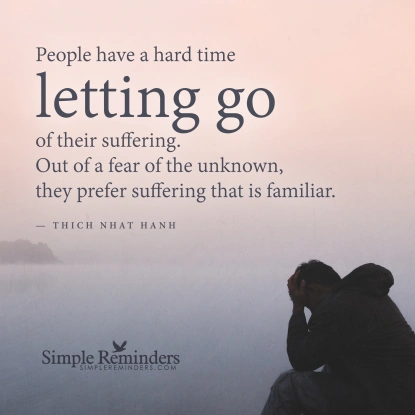
No matter the details, what is important, is to share the experience from a personal growth perspective. This post relates to the challenge we all experience several times in our life, that of holding on vs. letting go. Truly one of the most challenging personal growth experiences.
We are taught to go after what we want and to persevere until we get it. It is the mark of any true champion. Holding on to a dream, expending the needed perspiration and sacrifice to achieve this goal represents some of the most amazing milestones in our life.
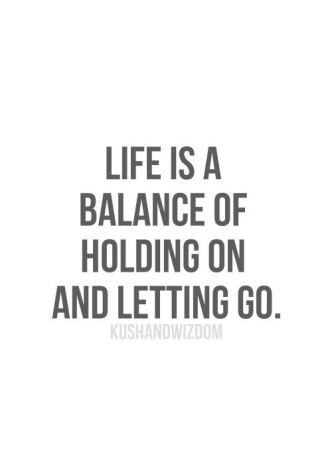 But what happens when this goal or achievement is no longer working, or ends? Letting go of a dream is one of the hardest things we can do. We see this as meaning we have failed. Whether it is a relationship, a job, or a goal, the sense of failure can be overwhelming. As a result we tend to hold on to aspects of our life that we hold as close and meaningful to us, even when these aspects are no longer working. We find comfort in the known vs. the unknown, in what appears as success vs. the sense of failure.
But what happens when this goal or achievement is no longer working, or ends? Letting go of a dream is one of the hardest things we can do. We see this as meaning we have failed. Whether it is a relationship, a job, or a goal, the sense of failure can be overwhelming. As a result we tend to hold on to aspects of our life that we hold as close and meaningful to us, even when these aspects are no longer working. We find comfort in the known vs. the unknown, in what appears as success vs. the sense of failure.
What I have learned, having to let go of things that were near and dear to me on many occasions, is that there is a process to letting go. And even though I am “experienced” in letting go, it does not mean that I get an “out of jail” card for avoiding the pain and suffering that comes with these events. What I can say, and with great conviction, is that LETTING GO SUCKS, at least in the beginning.
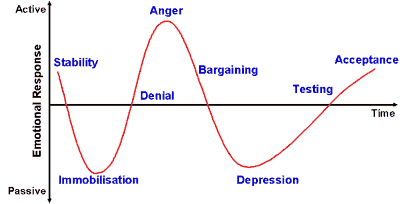
The chart shown to the left is the Kubler-Ross’ model of Grief and Loss. It represents the emotional steps for navigating high impact change. I keep a copy of this with me . It reminds me that my emotions are normal and that the process takes time, knowing that I may cycle back through this several times. As much as I logically know that I will experience these emotions, I find that being in any of these emotions is like driving in dense fog. Emotions are on the other end of the spectrum from logic. While in periods of high emotion, it is as if logic does not exist or make any sense. It is only about the anger, sadness or depression I am feeling that I can see. This is why I solicit the help of a counselor during these times. They help me to talk through the pain so that I can feel a little more relieved and focus on the logic of the situation.
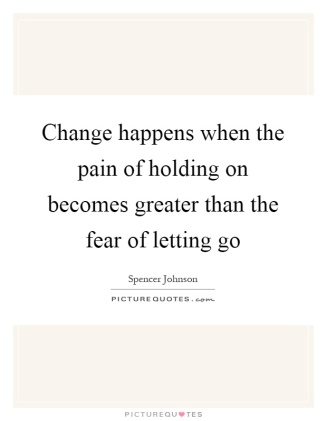
I remained in shock and denial for several weeks. I had recalled first learning about shock as a volunteer Emergency Medical Technician on an ambulance. They stated how the body has a natural ability to stabilize itself for short periods of time during physical or emotional trauma, so not to feel the intense pain. It was common at accident sites to see accident victims walking around as if they were okay, and as EMT’s we learned not to take this as a sign that they were okay. In fact, we were trained to focus on them and watch them for the signs of being in shock. Although at some level I knew that she said the marriage is over, I refused to believe it was true. I walked around as if everything was okay.
The pain then began to surface beginning with anger which is the outward expression of this pain, eventually followed by depression which is the internalizing of the pain and the reality of the change. The longer we hold onto what has been lost, the longer we remain in emotional pain. A great deal of self-care and support from others is required to manage these times, so not to fall prey to the dark side of these emotions. At our own pace, we begin to move towards acceptance, which begins with momentary glimpses or realizations that we will be okay. Faith plays a critical element here, believing that we will be okay and that as one door closes, others will open, with the possibility of even greater opportunities or goals.
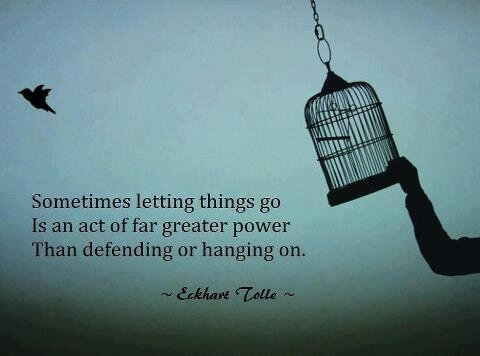
Acceptance is the stage where we are ready to let go of our dream, for whatever the new reality will be. The dark fog begins to lift so that we can see the world again. We are battered and bruised emotionally, but we are okay. We survived.
I believe there is a real power that develops within us as a result of these experiences. I like to describe this as resilience.
Resilience is that ineffable quality that allows some people to be knocked down by life and come back stronger than ever. Rather than letting failure overcome them and drain their resolve, they find a way to rise from the ashes. Psychologists have identified some of the factors that make someone resilient, among them a positive attitude, optimism, the ability to regulate emotions, and the ability to see failure as a form of helpful feedback. Even after misfortune, resilient people are blessed with such an outlook that they are able to change course and soldier on.
As much as the situation I face is tough, really tough, I know deep down that I will be okay. This basic belief is enough at times to get me up in the morning, to drag one foot in front of the other, to get through another day. Resilience is an aspect of our attitude that can be developed as a result of getting through these times. And it is our attitude that has the single most powerful impact on our perception towards life!
Note: I was fortunate to have volunteered in hospice care, where I witnessed the experience of fellow human beings coming to grips with letting go of their life here on Earth. They followed much of the same emotional cycle reviewed earlier. Acceptance in this case meant that they were okay with the ultimate experience of letting go, in this case letting go of life as we know it, and acceptance of dying. I wonder if all of our experiences of letting go during our life is preparation for this? In any case, it was inspirational to experience this, helping me to realize that if they can work to accept their mortality, that I can work to accept my challenge.

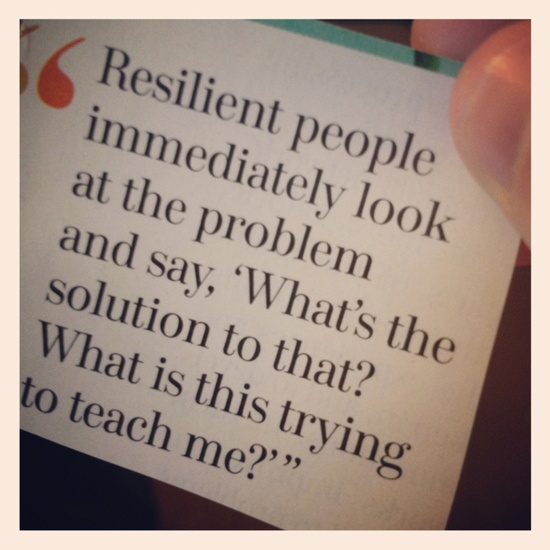
Thank you for your inspiring and helpful article.
LikeLike